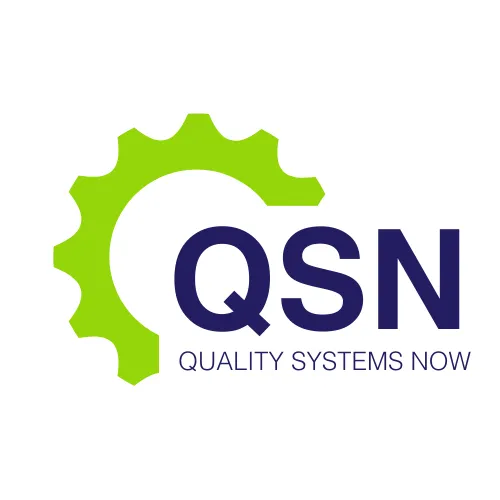NEWS

Developing a Mature Quality Culture
As global pharmaceutical, biotechnology, and medical device companies expand into new regulatory environments, one critical determinant of long-term success is the maturity of their internal quality culture. For organisations targeting entry into the Australian therapeutic goods market, cultivating a quality-centric culture is not only a regulatory expectation but a strategic necessity.
The Therapeutic Goods Administration (TGA) places high value on sustained compliance, proactive quality management, and continuous improvement. A mature quality culture is integral to achieving and maintaining these outcomes. At QSN Academy, we specialise in upskilling international organisations—particularly those from the United States—preparing to operate under Australian GMP and regulatory conditions. This article explores the defining characteristics of a mature quality culture and how it directly influences regulatory performance, operational excellence, and market success in Australia.
Defining Quality Culture
Quality culture refers to the collective values, beliefs, and behaviours within an organisation that determine how quality is prioritised, communicated, and acted upon. It transcends SOPs and compliance checklists—it is reflected in decision-making, leadership attitudes, resource allocation, and daily operations.
A mature quality culture demonstrates:
Commitment to patient safety and product quality at all levels
Transparent communication of quality issues
Empowerment of employees to raise concerns
Systematic approach to risk management and continuous improvement
Integration of quality objectives into strategic and operational goals
TGA expectations, as outlined in the Australian Code of GMP and other guidance documents, implicitly require companies to demonstrate that quality is not only documented but embedded.
The Regulatory Perspective on Quality Culture
TGA inspectors assess quality culture indirectly through documentation, interviews, deviation management, CAPA effectiveness, and audit readiness. Indicators of a poor quality culture include:
Repeated deviations with inadequate root cause analysis
Superficial CAPAs that focus on symptoms rather than causes
Non-transparent reporting of issues or “gaming” of data
Over-reliance on QA to “own” compliance
Conversely, signs of a mature culture include:
Consistent escalation and communication of issues
Involvement of cross-functional teams in quality decisions
Preventive actions based on data trends, not just compliance failures
Visible leadership support for quality initiatives
QSN Academy supports companies in preparing for TGA inspections by evaluating organisational culture and offering targeted training to strengthen quality mindsets and behaviours across all functions.
Leadership and Tone from the Top
A mature quality culture is led from the top. Senior management must visibly and consistently support quality objectives—not just during inspections, but as a core business value. Leadership's role is to:
Define and communicate a clear quality vision
Allocate resources for training, systems, and process improvements
Encourage openness and learning from failure
Set performance indicators that balance commercial and quality outcomes
Organisations with reactive or compliance-only leadership tend to struggle in regulated environments like Australia. TGA expects a robust Pharmaceutical Quality System (PQS) with defined leadership oversight, quality reviews, and continuous improvement. QSN Academy trains executives and senior managers to take ownership of the quality agenda and lead cultural transformation efforts.
Employee Engagement and Accountability
An engaged workforce is essential to sustaining a quality culture. Employees must feel accountable for quality outcomes and empowered to take action. This requires:
Training beyond SOP reading—staff must understand the “why” behind processes
Structured onboarding that instils quality expectations from day one
Accessible mechanisms to report errors or concerns without fear of reprisal
Recognition systems for quality-enhancing behaviour
The TGA evaluates the effectiveness of training programs and expects evidence of competency, not just attendance. Organisations entering the Australian market should assess and enhance their training systems to build capabilities at all levels. QSN Academy provides interactive and scenario-based training modules that help instil ownership, accountability, and critical thinking.
Robust Deviation and CAPA Management
A key indicator of quality maturity is how an organisation manages deviations and implements corrective and preventive actions. In mature cultures:
Deviations are documented consistently and without hesitation
Investigations are timely, thorough, and multidisciplinary
Root cause analyses use formal tools such as Ishikawa diagrams or 5 Whys
CAPAs are realistic, resourced, and followed through
Effectiveness checks are meaningful and data-driven
In immature systems, deviations may be closed prematurely, investigations lack depth, and CAPAs address symptoms. TGA inspectors are trained to detect these patterns. QSN Academy offers practical workshops in deviation management and CAPA development that align with TGA and PIC/S expectations.
Data Integrity and Transparency
Data integrity is a critical area of focus for the TGA and a key reflection of an organisation's quality culture. Mature cultures promote accuracy, completeness, and traceability of data. This includes:
Adherence to ALCOA+ principles (Attributable, Legible, Contemporaneous, Original, Accurate, and complete with + enduring and available)
Systems that prevent backdating, undocumented reprocessing, or selective reporting
Audit trails in both electronic and paper-based records
Staff trained to understand the implications of data falsification
Failure to ensure data integrity can result in severe regulatory consequences. QSN Academy conducts audits and targeted training to identify vulnerabilities and foster transparent data practices across technical and administrative teams.
Continuous Improvement and Risk Management
A mature quality culture drives proactive improvement, not just reactive compliance. Organisations must embed risk-based thinking and continuous improvement into their operations. This includes:
Regular trend analysis of deviations, complaints, and batch records
Use of Quality Risk Management (QRM) tools such as FMEA or risk matrices
Integration of risk evaluation into change control, validation, and supplier qualification
Periodic Management Reviews with data-driven discussion of quality performance
TGA inspections often explore how a company monitors and improves its PQS over time. QSN Academy delivers applied training in quality metrics, risk-based decision making, and process optimisation to support lifecycle quality assurance.
Cross-Functional Integration
Quality cannot function in isolation. In a mature system, quality is embedded across departments—production, engineering, supply chain, regulatory affairs, and marketing. Cross-functional collaboration is crucial for:
Change control impact assessments
Technology transfer and scale-up
Complaint investigation and resolution
Recall preparedness and response
Silos inhibit quality effectiveness and increase regulatory risk. TGA expects integrated systems, shared responsibility, and consistent communication across functional areas. QSN Academy facilitates cross-departmental training and gap assessments to improve alignment and cohesion in quality-related activities.
Benchmarking and Maturity Models
Many organisations benefit from assessing their quality culture using formal maturity models. These models rate quality systems across defined domains (e.g., governance, risk, training, metrics) from basic compliance to excellence. This allows benchmarking against industry standards and identification of gaps.
QSN Academy uses custom maturity models based on PIC/S and TGA frameworks to assess client systems. We then design roadmap strategies to elevate performance—often through sequenced training, process redesign, and leadership engagement.
Talk to Us about Developing a Quality Culture
A mature quality culture is more than a regulatory aspiration—it is a strategic asset that enhances resilience, market access, and long-term success. For companies entering the Australian therapeutic goods market, demonstrating a commitment to quality through culture is critical. The TGA evaluates not just what you document, but how your organisation behaves, responds to challenges, and strives for improvement.
QSN Academy equips organisations with the knowledge, frameworks, and skills to develop a robust and enduring quality culture. Through leadership training, employee engagement, system optimisation, and regulatory alignment, we help our clients meet and exceed TGA expectations. In doing so, we not only enable successful market entry but lay the foundation for sustainable compliance and product excellence in Australia’s highly regulated healthcare environment.
